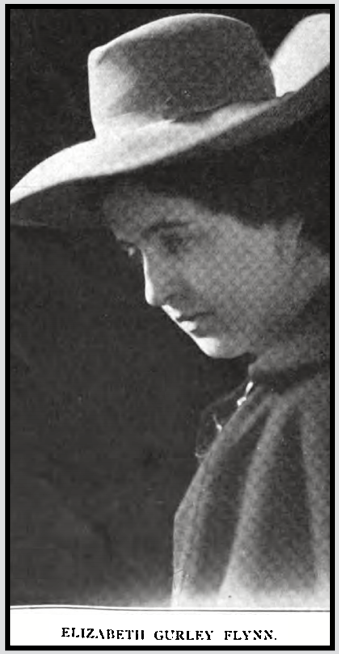 —————
—————
Hellraisers Journal – Thursday December 4, 1913
Coal Miners of Southern Colorado Are Fighting to Win, Part II
From the International Socialist Review of December 1913:
[Part II of II]
Some one has said, “A fool in revolt is infinitely wiser than a learned philosopher apologizing for his chains.” Believing this, fully 95 per cent of the miners answered the call to strike [September 23, 1913]. Men with families within three days of starvation and without clothes enough to protect their frail bodies from the biting winds of mountain winters came out fully determined to win or die in the attempt. And who will blame them? Work such as the miner does is no longer honorable but has come to mean “drunkenness, vice and superstition.” It makes men and women unscrupulous, hard and restless. It destroys for others the treasure of life-a home. All the noble sentiments of liberty and the joy of labor mean in reality to the miner slavery of the worst type.
With thoughtless hymns of praise of this massacreing of labor, society allows one wholesale slaughter after another without a protest. While I am writing this the news arrived of the Dawson, New Mexico, disaster, in which the lives of 261 miners were lost and the operators refused to allow Secretary Doyle of the miners’ union to give the widows and orphans $1,000 donated by the union because the camp was non-union. And just as certain as that nothing becomes better without the desire to improve it so it is a healthy sign of the times that starvation wages for conscientious drudgery no longer fills the miner with heartfelt gratitude toward the master class.
The mine slaves were so cowed that the operators were sure that not more than 25 per cent would quit and when practically every miner laid down his tools, completely tying up the coal industry of Colorado, the wrath of the masters knew no bounds. They immediately got busy and sent a deputation of their lackeys, consisting of a lawyer, banker and a Catholic priest (Father Malone), to Washington to repeat the lies of the operators that the miners were satisfied with conditions but forced to strike by eastern agitators like Frank Hayes and Mother Jones. Their thugs began to terrorize the country, shoot up the tented camps of the strikers, insult the women and abuse the children and the operators began to call for the militia that the state might pay the cost of breaking the strike and thus save John D. a few paltry dollars with which to build a few more churches and start more Sunday schools where they sing and PREY-“servants obey your masters.”
Failing to get the militia as soon as they called, the operators had to content themselves with filling the jails of Colorado with strikers who dared to exercise their constitutional rights of peacefully asking imported strikebreakers to not work. In the city of Boulder and within the shadow of Colorado’s greatest educational institution, the state university, thirty-six were confined in the county jail until the court permitted the prisoners to bail each other out. Forty-nine others were arrested in Las Animas county and marched seven miles to the Trinidad jail between two rows of armed guards with Belk and Beltcher (out on bond for murder of Lippiatt), following up the rear with a Gatling gun mounted on an armored automobile.
Frank Hayes says, “The operators have several machine guns mounted on autos. They also have what is known as the ‘steel battle ship [Death Special].‘ This is an automobile with a high body of solid sheet steel built up so as to almost conceal the guard inside. The steel furnishes resistance to the bullets and is so arranged that the assassins on the inside may shoot their rifles in perfect safety. It is a splendid refuge for a coward. The body of the machine is shaped like a torpedo and was designed and built for mine guards. It carried a rapid fire machine gun with a range of more than two miles. As bad as West Virginia was there was nothing down there to compare with this latest instrument of murder that the operators of Colorado are using.”
As this procession neared town, G. E. Jones, a member of Western Federation of Miners, attempted to get a picture of the armored car. A. C. Felt beat him insensible and destroyed his camera and had him arrested for disturbing the peace.
Gun men patrol the public roads in armored autos, shooting up first one camp and then another. The first resistance the strikers offered was at Forbes, October 17, one striker was killed, two wounded and a deputy shot in the hip. One hundred and forty-seven bullets from a machine gun passed through a tent occupied by an aged Scotchman, who saved his life by lying flat on the floor. After this battle the miners made preparations to defend themselves from further attacks of the guards.

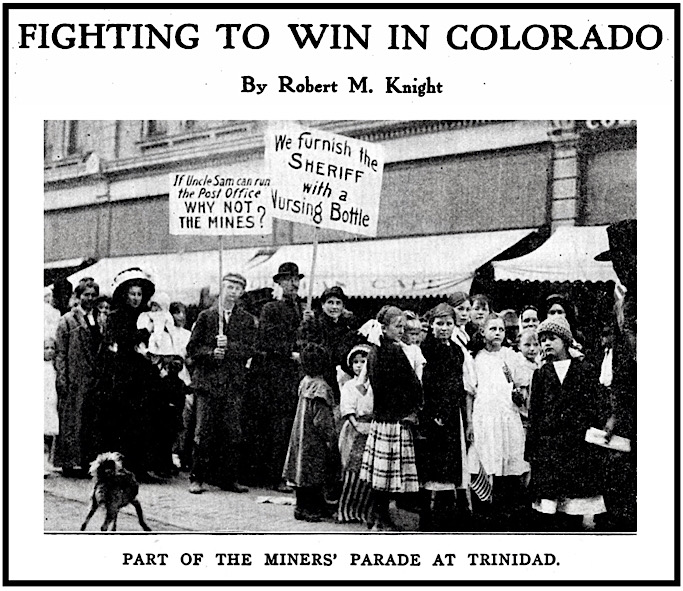
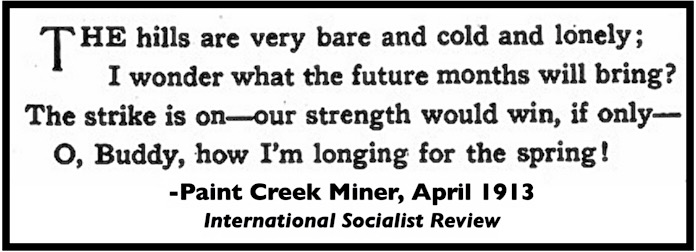 —————
—————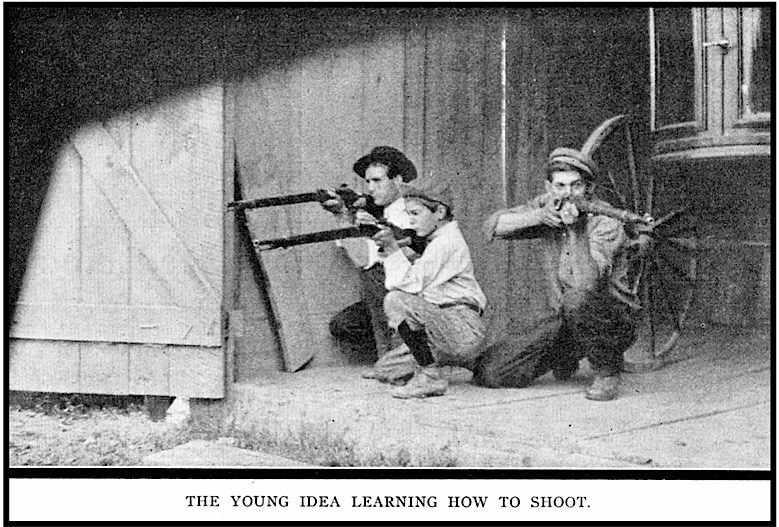
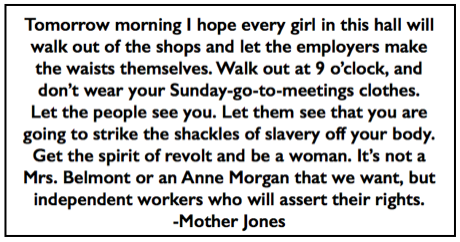 —————
—————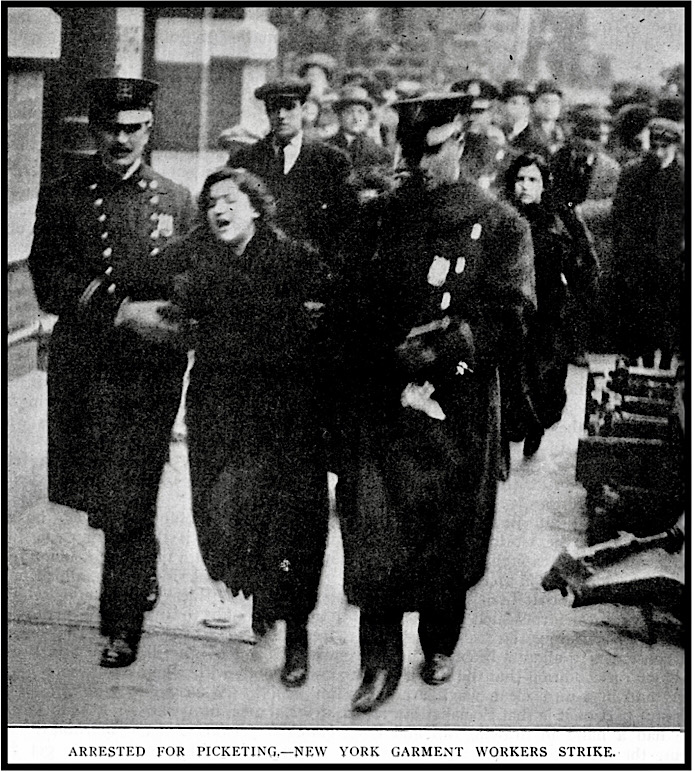
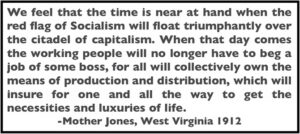 —————
—————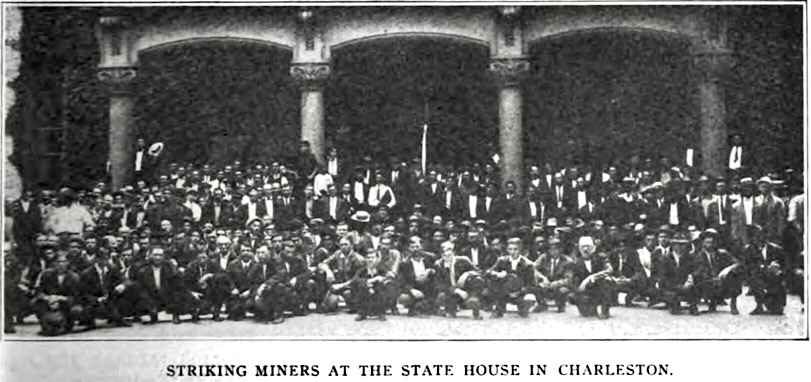
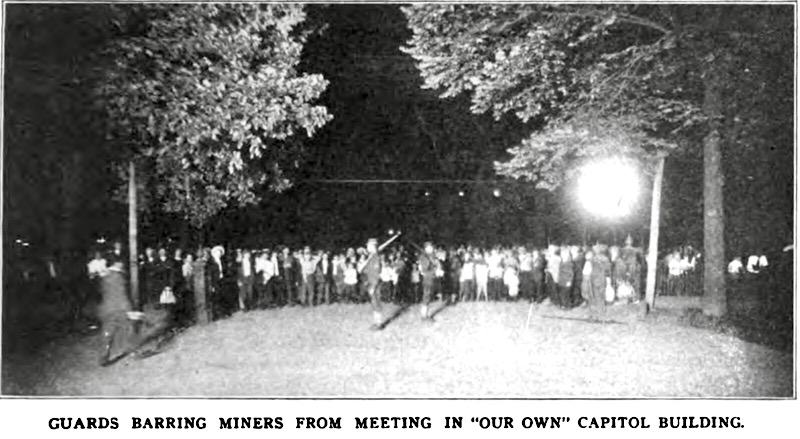
 —————
—————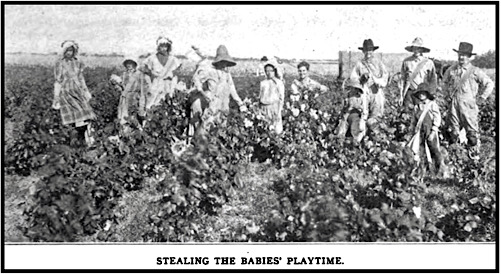
 —————
—————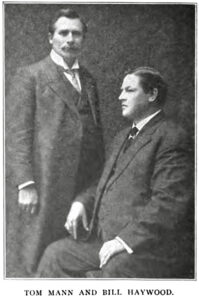
 —————
—————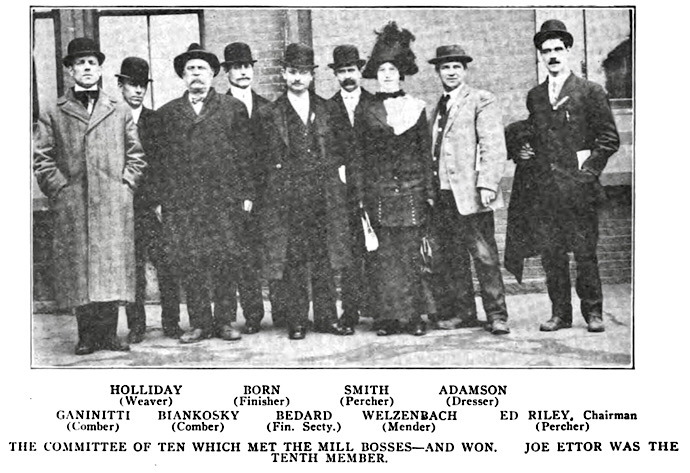
 —————
—————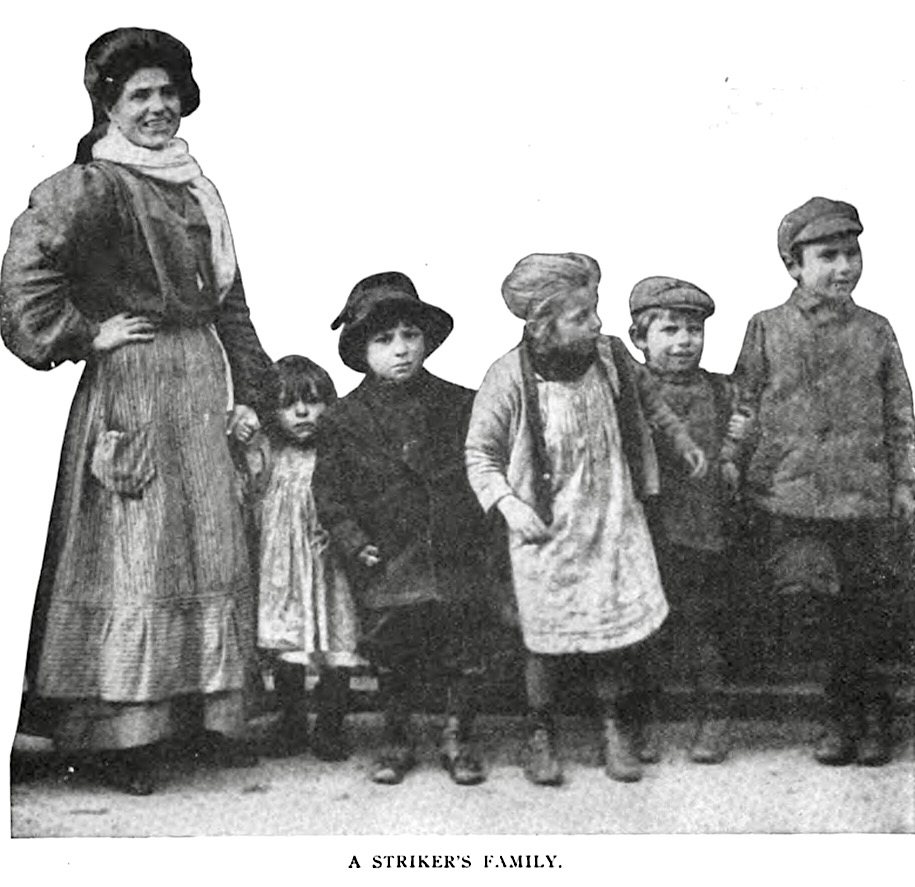
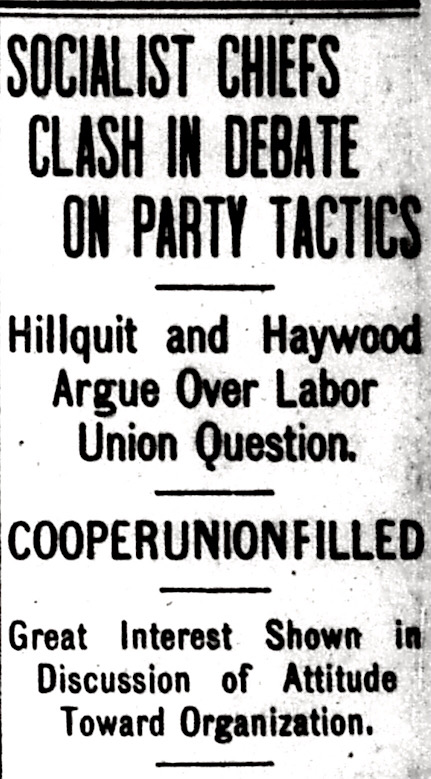
 —————
—————